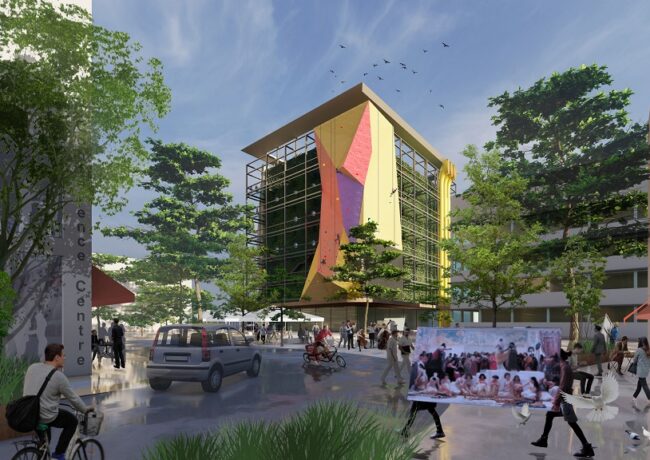NW in 2018 | The art of regeneration
Urban leaders have long been aware that creative communities breathe life into low value areas, only to be squeezed out when land owners cash in, writes Erika Rushton of Baltic Creative Community Interest Company.
Cities with creative communities are more economically successful and more socially inclusive. As inner city residential development continues at pace, cities risk losing their identity and their lifeblood.
Baltic Creative CIC is a property company owned by, and for, the creative and digital sector in Liverpool. Baltic Creative cannot be squeezed out. In the last five years, partners in Baltic Triangle created more than 500 creative and digital businesses, employing 1,500 people and becoming the fastest growing tech cluster outside London in 2016.
In the aftermath of the crash property professionals at the first International Festival of Business thought EU subsidies, low yields and the lack of Grade A space were to blame for stalled developments. Attendees at Place North West’s recent Merseyside Update echoed the same concerns. Yet in 2012 Baltic’s first 45,000 sq ft was fully occupied within six months and, having tripled its footprint to 120,000 sq ft by 2017, it was again fully occupied within six months. The waiting list could fill all that space again.
Baltic is not Grade A; indeed it is affectionately known as ‘The Tin Sheds’. Demand ranges from tiny, shared spaces to open plan warehouses. Tenants share, sub-let, move in and out as they please. The average company size is three and expansion and contraction is continuous. A recent visit to Oslo, where the sector is more advanced, suggests privatised offices will be rejected in favour of socialised space where entrepreurs can bounce ideas and be involved in three or four ventures at any time.
Eighties Liverpool economists were convinced white guys in their forties were going to uproot their families and factories, and bring them to Merseyside, if only incentives were good enough. They rarely came.
At Baltic economic success is home grown – people having a go, taking a punt, involving families and friends, collaborating and producing. Tenants don’t start with technology they start with a problem to solve, a point to prove, a mission to fulfil – and deliver a creative response.
Baltic companies are growing at 8% a year and 57% are trading internationally, compared to 30% this time last year. The DIT’s 2017 inward investment results confirm C&D projects deliver five to 25 times the jobs of automotive or engineering sectors and 26% growth, delivering 80,000 jobs, is projected in the North over the next three years.
Competitiveness is replaced by collaboration with 75% of tenants collaborating. Baltic Creative also collaborates with other area landlords, other clusters in the city region – Ten Streets, Fabric District and Artist-Led in Birkenhead – and with other city regions such as Salford where we are working with Islington Mill, Bow Arts and AEA to deliver the Mayor’s Creative Industrial Zone plans. As a British Council Creative Hub Exemplar we hosted a 100 global visitors last year. These are not competitors, they are local and global collaborators, designing a future that’s shared and exciting.
We set out to support a sector, not to develop property or make money. As a CIC our profits, derived from tents rent, are all reinvested in the sector. In future it may not be what we build, but how we use our profits, that determines whether spaces are fully occupied, regardless of their A, B or S (for shed) grading.
90% of jobs are being transformed by technologies. Baltic Triangle may offer an indication of how we will all work in the future and if so it offers some hints on the spaces and places we should be designing.
- Erika Rushton is chair of Baltic Creative CIC and runs Creative Economist
The North West in 2018 series features guest contributors looking ahead to next year and is published throughout December.




